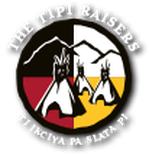PRESS & MEDIA |
PRESS & MEDIA |
|
Pictured Above: A demonstrator holds a sign outside of Progressive Field in protest of the Cleveland team name on July 24, 2020. Photo credits to David Petkiewicz and Cleveland .com State legislatures, professional sports teams, and public schools across the country have recently been reckoning with the harm caused by offensive Native mascots. In Colorado, years of advocacy by the Ute, Southern Ute, and Northern Arapaho nations led to the June enactment of SB21-116, a bill banning the use of Native mascots in the state’s public schools. In Ohio, the July 23rd announcement by Cleveland’s Major League Baseball team that they will be changing their name to the Cleveland Guardians was commended by the National Congress of American Indians (NCAI) as a step forward in educating the public on this topic. And in the nation’s capital, the Washington Football team recently confirmed that they will not be choosing a mascot with Native-related imagery in the wake of the summer 2020 retirement of their previous offensive mascot. This progress follows years of academic research on the detrimental impact of Native mascots and decades-long efforts from advocacy groups and Indigenous activists like Suzan Harjo (Hodulgee Muscogee and Cheyenne), Crystal Echo Hawk (Pawnee), and Amanda Blackhorse (Diné) to retire such mascots. Studies have shown that Native mascots have a number of negative effects on Indigenous people and, in particular, on Indigenous youth. These effects include low self-esteem, depression, a decreased sense of community worth, and increased stress levels. The same studies have also shown that the mascots contribute to negative stereotypes of Indigenous populations amongst non-Native people and make it more difficult to build positive cross-cultural relationships. The negative impact of caricatured sports mascots is further magnified by the stark lack of Indigenous representation in other media. While the NCAI has identified over 1,800 k-12 schools across the country which still have a Native mascot, activists and Native advocacy groups have expressed their hope that the recent mascot bans and name changes are a step in the right direction towards the removal of dehumanizing Native mascots and towards an increase in the visibility of Indigenous people through more accurate and positive representation. Pictured Above: A graphic from Illuminative’s Change the Story initiative. Last week, we spoke to Gen7 youth Exodus to hear his thoughts as an Indigenous young person on mascots and the importance of positive Native representation. Exodus expressed support for the Colorado legislature’s recent ban on Native mascots in the state's public schools, as he feels the mascots make fun of how Indigenous people historically lived and dressed. "That's setting a bad view to us and our sacred lands," he said of the mascots. When asked about his thoughts on Indigenous representation, Exodus stated that he would like to see more positivity and respect towards Native people. We offer him our gratitude for sharing his insight on this topic with us! Additional resources on Native mascots, their harmful effects, and the ongoing movement to retire them listed below. Resource Links A Time Magazine interview with Adrienne Keene (Cherokee) on the history and impact of Native mascots: https://time.com/5866481/native-american-mascots/ A documentary which analyzes the derogatory Washington Football Team name and discusses the appropriation of Native cultures. Available on Kanopy with a university login or public library card for participating colleges, universities, and libraries: https://www.kanopy.com/product/more-word Research on the harmful effects of Native mascots: A 2008 study on the psychological effects of Native mascots by Stephanie A. Fryberg, Hazel Rose Markus, Daphna Oyserman, and Joseph M. Stone: http://www.indianmascots.com/fryberg--web-psychological_.pdf A summary, created by Illuminatives, of a recent study on the relationship between Native American identity and attitudes toward Native mascots: https://illuminatives.org/wp-content/uploads/2018/04/UnpackingTheMascotDebate.Explainer.pdf?x18008 On recent name changes and bans on Native mascots: “The long road to a reckoning on racist team names” from Vox: https://www.vox.com/first-person/22596477/cleveland-indians-racist-name-change “Indigenous parents explain why Cleveland Guardians name change means so much” from Today: https://www.today.com/parents/cleveland-indians-become-guardians-indigenous-parents-cheer-t226405 “Washington NFL Team says no Native-themed mascot” from Indian Country Today: https://indiancountrytoday.com/news/washington-nfl-team-says-no-native-themed-mascot A summary of Colorado SB21-116: https://leg.colorado.gov/bills/sb21-116 Organizations leading the movement to remove dehumanizing Native Mascots: Illuminatives https://illuminatives.org/change-the-name/ The National Congress of American Indians: https://www.ncai.org/proudtobe No More Native Mascots: http://www.nomorenativemascots.org/ Change the Mascot: https://www.changethemascot.org/ Pictured above: A demonstrator at a 2014 march in Minneapolis in protest of the name of the Washington Football Team. Photo credits to Fibonacci Blue. Sources for this blog post include: Coverage of this topic from Indian Country Today, The Denver Post, The Casper Star-Tribune, the Associated Press, Vox, Today, the National Congress of American Indians (NCAI) National School Mascot Tracking Database, a 2020 study from Laurel R. Davis-Delano, Joseph P. Gone & Stephanie A. Fryberg, 2008 academic journal article from Stephanie A. Fryberg, Hazel Rose Markus, Daphna Oyserman, and Joseph M. Stone, and resources from the National Congress of American Indians (NCAI)
0 Comments
Leave a Reply. |
AuthorWrite something about yourself. No need to be fancy, just an overview. Archives
July 2024
Categories |
